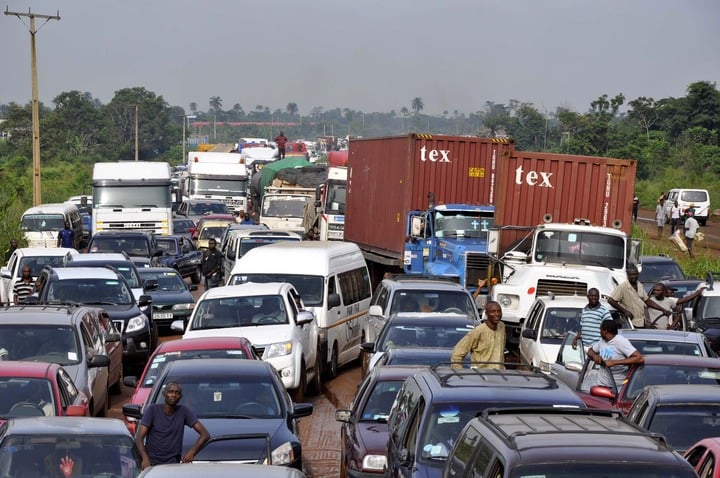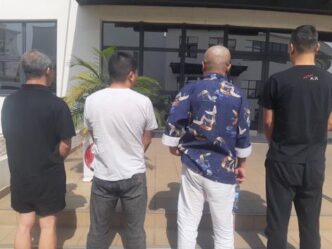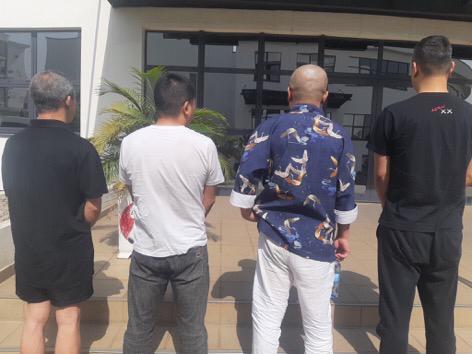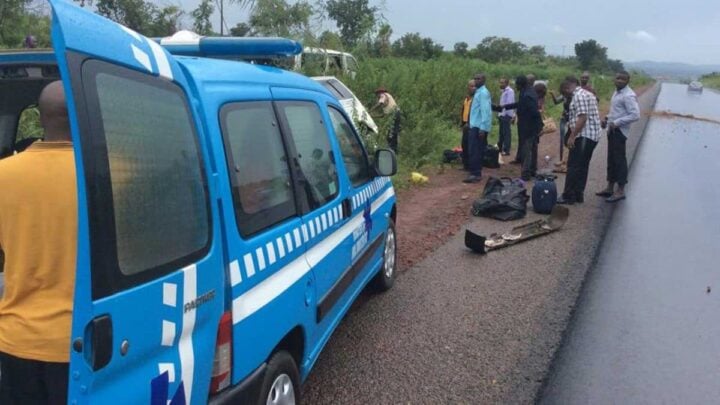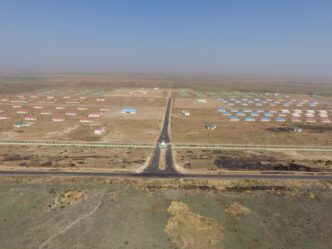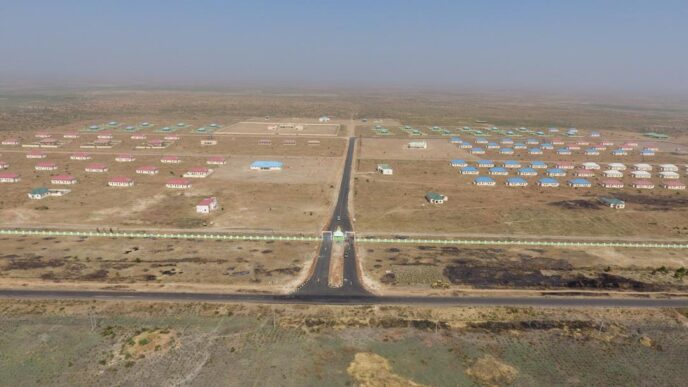A report by SB Morgen (SBM) Intelligence, a research firm, says the poor condition of roads in Nigeria is responsible for the hike in interstate transport fares.
The report, “Roads to Nowhere: A Bumpy Ride Through Nigeria’s Roads,” x-rayed the conditions of major roads in Nigeria.
For the report, the research firm surveyed 245 drivers across eight major commercial hubs, including Abuja, Calabar, Jos, Kano, Lagos, Maiduguri, Onitsha, and Port Harcourt.
The report highlights the “daily struggles of navigating congested highways, dodging potholes, and grappling with the looming risks of insecurity” by transporters.
Advertisement
According to the report, buses dominate Nigeria’s roads, representing 71.8 percent of the total vehicles plying the country’s highways, followed by cars (17.9 percent) and trucks (8.6 percent).
HOW POOR ROADS AFFECT TRANSPORTERS
In the report, 86 percent of transporters surveyed said the state of Nigerian roads led to the transport fares hike; 18 percent of the drivers noted that rough road conditions made them to visit mechanic workshops frequently, while 56 percent of the respondents said bad portions on the road increased the time of their journey.
Advertisement
Thirty-six percent of the respondents believed that improving the roads would have a significant economic impact; 49 percent of transporters said bad roads have increased the maintenance costs of their vehicles.
The report said the issues that affect road users are poor roads, potholes, roadblocks, security concerns, and traffic congestion.
It added that there was widespread dissatisfaction among transporters with the state of Nigerian roads.
“Only 17.6% considered the road conditions good. This suggests that the road conditions are not ideal overall, with most respondents viewing them as only fair,” the report said.
Advertisement
“Furthermore, 29% of the surveyed road users observed no change in road conditions over the past two years. 37% of respondents noted improvements, while 34% reported a deterioration in conditions.
“This indicates that progress in road infrastructure has been uneven, with some areas improving while others continue to face challenges.”
The report stated that due to delays caused by traffic congestion, insecurity, and poor road infrastructure, actual travel times on Nigerian roads are significantly longer than estimated.
SECURITY AND ECONOMIC FACTORS
Advertisement
According to the report, insecurity is a pressing issue on Nigerian roads, as 84.6 percent of the drivers surveyed reported experiencing or hearing security incidents along their travel routes.
Only 15.4 percent of the respondents did not encounter or hear of any security incident in their travel routes.
Advertisement
“These findings highlight the pervasive nature of security challenges on the country’s roadways and the urgent need for effective measures to address them,” the report said.
“Nigeria’s roads are fraught with danger, from insecurity hotspots in Port Harcourt, Maiduguri, and Lagos to inconsistent police patrols and treacherous road conditions that have led to numerous accidents, underscoring the urgent need for improved security and infrastructure.
Advertisement
“A notable 42% of respondents found the roads somewhat safe, though this varied in degree. Only 2.4% considered the roads very safe, 14.3% rated them generally safe, and 25.3% felt they were moderately safe.
“Conversely, a majority of 58% viewed the roads as unsafe, with 34.7% expressing frequent security concerns and 23.3% indicating significant fears of insecurity. This highlights a prevailing sense of unease among road users.”
Advertisement
Also, the report highlighted “a consensus that improvements in road conditions will yield a positive economic impact”.
The report revealed that poor road conditions take a toll on vehicle maintenance and longevity as transporters have to spend more on their vehicles.
It was stated that poor roads impose a heavy financial burden on transporters, which strained their operations and profitability.
“The tough operating environment has pushed most transport operators to revise their pricing. The largest share (32.2%) introduced moderate price increases, while 31% significantly raised their rates,” the report said.
“Another 22.4% opted for slight price adjustments, leaving only 14.3% able to maintain their original pricing.
“These numbers reveal a ripple effect of poor road conditions across the transport sector, with 85.7% of operators compelled to raise prices to keep their businesses afloat.”
